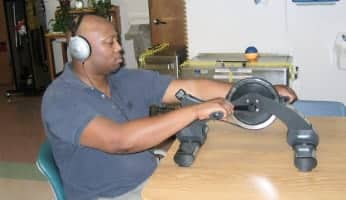Ricky’s Remarkable Transformation: IM’s Impact on ADHD, Asperger’s, and Anxiety

Home - Testimonials - Pediatric Testimonials - Ricky’s Remarkable Transformation: IM’s Impact on ADHD, Asperger’s, and Anxiety

Ricky’s Remarkable Transformation: IM’s Impact on ADHD, Asperger’s, and Anxiety
Ricky is a 10-year old boy with a diagnosis of ADHD, Asperger’s syndrome, anxiety and fine motor delay.
Struggles in School and at Home
Ricky attends public school and is in the 4th grade where he had been struggling with paying attention in class, completing assignments, and focusing on tasks.
Ricky’s mother was very fearful that in 4th grade he would get lost in the shuffle and fall behind in his schoolwork.
Ricky would never choose to sit and read a book. Getting homework done took hours each night and included a fight from Ricky.
Exploring IM Therapy: A Mother’s Determination
Mom decided that she wanted to come to our local Children’s Hospital to see if IM was available there and to enroll Ricky.
She had reviewed some of the research and felt that this could help Ricky in a way that traditional therapy techniques didn’t address.
Ricky’s Initial Evaluation: Anxiety and Motor Challenges
Ricky was evaluated and although he loved and played sports, he came out below average on the motor performance testing. He was extremely anxious during the evaluation, but held it together until it was over.
Mom gave other information to us about Ricky’s poor study habits, difficulty with getting assignments done at home and school, poor sleeping habits, lack of interest in anything except his skateboarding and poor social skills.
He was also described as grumpy and disagreeable. “He hasn’t slept through the night in 10 years”
Engaging Ricky: Sports and Focus-Based Exercises
It was easy to get Ricky involved in the exercises as long as I related them to a sport or incorporated a larger motor activity along with the targeted switch activation.
We did basketball exercises, sorted baseball cards, pretended we were snowboarding or surfing on different balance boards – all while activating a switch in some way so that he could learn to focus.
It was very difficult for him to lower his scores initially, as he had no idea how to focus or concentrate.
At the end of our sessions, this energetic little guy was mentally and physically exhausted, falling asleep in the car on the way home.
Notable Changes at Home and School
Functionally there were many changes at home and school.
By our 3rd visit, mom reported that he was starting to sleep through the night. Something that he hadn’t done in 10 years! Although he did still wake up, he started to learn how to remain calm and go back to sleep.
After our 10th visit she called and told me that his handwriting was much more legible – neat and orderly.
The biggest change though was that his homework was getting done quickly, neatly and correctly!
His 4th grade teacher gave him high marks and said that he was very pleasant and hard working!
“IM is so cool – and it really really helped me!” This was what Ricky said as he headed out the door after our second to last session.
When retested, his scores were age appropriate and his timing and coordination were within the exceptional range as well.
Wendy Harron, OTR/L is a graduate of Thomas Jefferson University in Philadelphia, PA. Wendy has extensive experience working with children suffering from Developmental Delay, Down Syndrome, Cerebral Palsy, Learning Disabilities, ADD/ADHD, Sensory Processing Disorder, and various other genetic and developmental disabilities. She has also completed specialized training in the areas of sensory integration, autism, developmental disabilities, cerebral palsy, seating and positioning/wheelchairs/equipment and ADD/ADHD. She uses the Interactive Metronome in her practice regularly and has seen wonderful results




